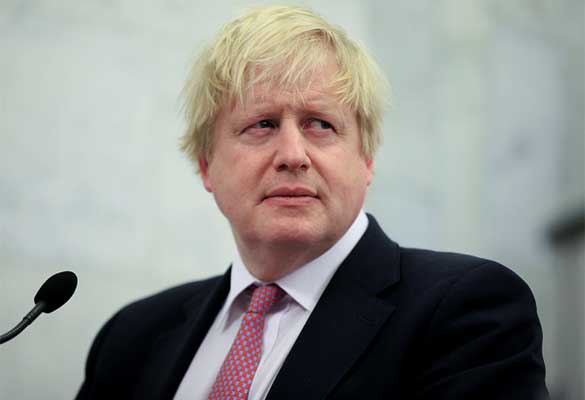Food exports from Fukushima will hit the UK market in June. Boris Johnson symbolically snacked popcorn from the Japanese prefecture devastated by a nuclear accident over a decade ago.
The triple meltdown in March 2011 at a Fukushima power plant is the most horrific nuclear accident since Chernobyl. Britain had imposed severe restrictions, which are being lifted now, despite its peers still banning and limiting imports from the once radioactive landscape.
The remaining restrictions will be removed on June 29th to strengthen bilateral relations between the UK and Japan. Prime Minister Johnson announced the relaxation in a meeting with Japanese Prime Minister Fumio Kishida on the day before the G7 summit in Germany.
The British PM told his Japanese counterpart that UK-Japan relations were moving from “strength to strength.”
He added that the two great island democracies were united in value and determined to stand their ground against autocracies and the risk of global regression. They promised cooperation in technology, trade, and security.
“Of course, I am delighted that tomorrow – finally – we can have Fukushima-origin products all over the shops in the UK,” Boris Johnson remarked.
The foods will be available in Japanese restaurants and stores in England, Scotland, and Wales. However, supermarket chains like Tesco and Waitrose said they have no plans to stock up on Fukushima products. Northern Ireland will not accept Japanese products because they follow EU regulations on food & drink.
The Food Standards Agency dropped 100 becquerels per kilogram (Bq/kg) radio-caesium upper limit for foods from Japan to help alter UK’s food policy. Becquerels is a measure of radioactivity.
The FSA said in late 2021, “Our risk assessment shows that removing the 100 becquerels per kilogram (Bq/kg) maximum level of radio-caesium for food imported from Japan to the UK would result in a negligible increase in dose and any associated risk to the UK consumers.”
The prefectural government in Fukushima says its post-disaster food, such as vegetables and meat, has the most stringent safety standards in the world. However, the permitted radioactive cesium levels in regular food in the region are 100 becquerels per kilogram. Whereas in America it is 1,200 Bq/kg and Europe’s required levels are 1,250 Bq/kg.
Nikkei Asia believes this will boost the sale of 23 food products, including mushrooms from Japan which formerly needed proof of test for radioactive materials.
The Japanese government was happy with the British policy and said: “the decision based on scientific evidence would help reconstruct affected areas.”
They added that they would continue to persuade the European Union and other countries in the region to lift food import restrictions and bans.
Countries like Russia, South Korea, Indonesia, Taiwan, China, and other countries still regulate imports from Fukushima.
The move has been a long time in the making. In 2017, when Boris Johnson was foreign secretary, he sampled some Fukushima-grown and processed peach juice offered by his Japanese counterpart Taro Kono and said, “Yum.”



